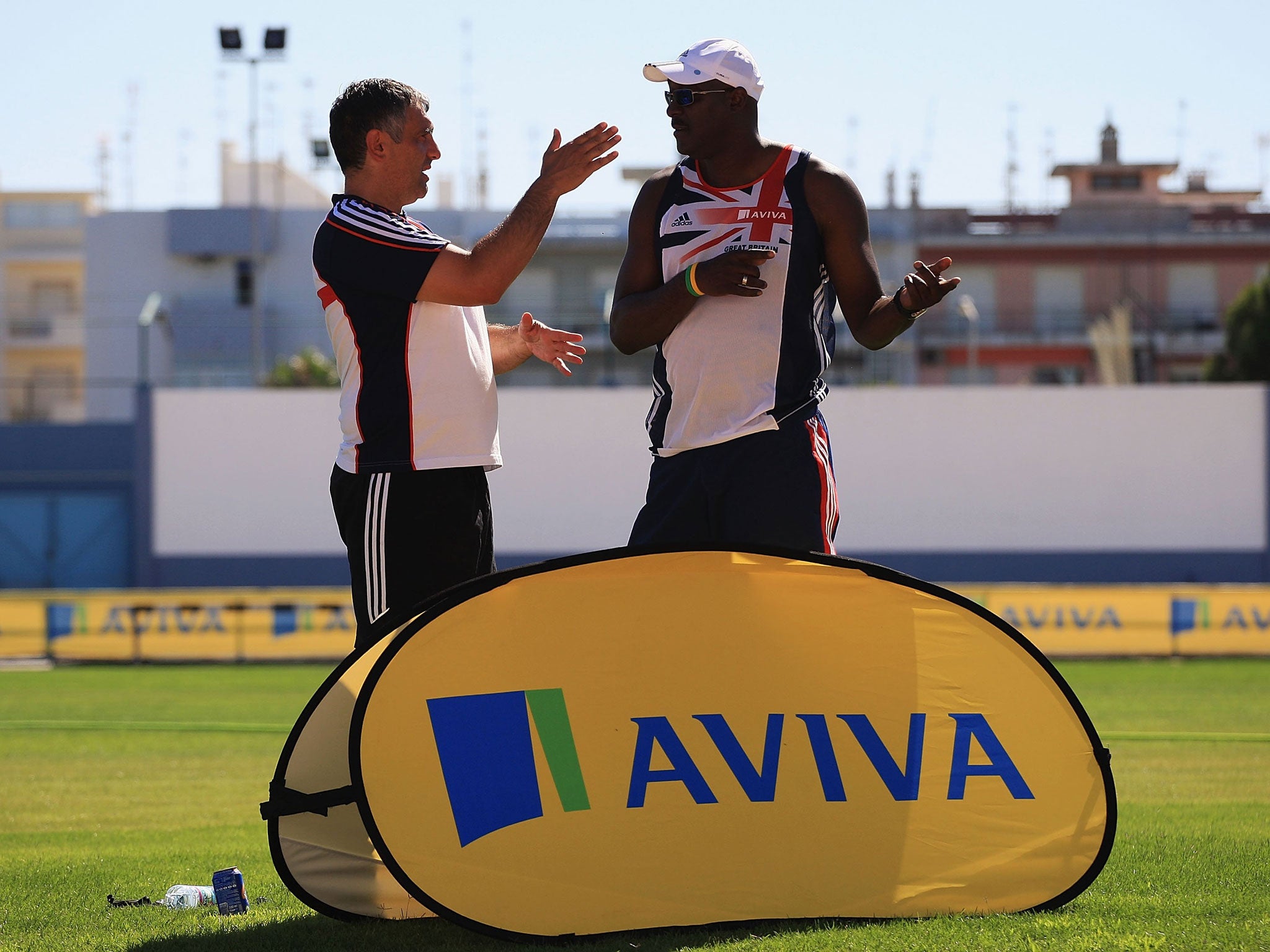Ashling O'Connor: Behind every great athlete is a great coach, but these unsung heroes seldom get the recognition – or the cash support – they deserve
Volunteer coaches provide time worth £7.9bn a year, based on the minimum wage

Christine Ohuruogu and Lloyd Cowan are part of a team but, unless you are an athletics nut, you will not have heard of the latter.
Ohuruogu is a household name since winning 400m Olympic gold in Beijing in 2008 and, after retaining her world title in Moscow this year and in so doing breaking the long-standing national record held by Kathy Cook, was this week named on the 10-strong shortlist for BBC Sports Personality of the Year.
For his part as her coach, Cowan – appointed this year by UK Athletics as its lead sprints coach – is also up for a gong. Next week he is nominated for the title of High Performance Coach of the Year at the UK Coaching Awards against Warren Gatland, who led the British & Irish Lions to a historic series victory in Australia, and Anna Mayes, the England netball coach who steered her players to a (comparatively under-mentioned) 3-0 series drubbing of the old sporting enemy.
But that is where the similarities end. Ohuruogu will take to the red carpet for a live TV extravaganza watched by 12,000 people at the First Direct Arena in Leeds and millions of others at home. Cowan will take the Tube to the Montcalm Hotel in London’s Marble Arch and a crowd of 300.
Coaches are an integral part of Britain’s unprecedented sporting success but they are still largely anonymous. They deserve much higher appreciation – recognition that without them we would not know the names of the sports stars we take delight in watching.
It is a slowly changing culture. During the London Olympics, it was hard to interview a victorious British athlete – and there were many, if you remember – without them gushing with praise for the man or woman who drove them on to win their medal.
Read Katherine Grainger’s sincere autobiography and the characters that emerge as the most influential in a rowing career which happily included a gold medal in London after three silvers are her coaches, most notably Paul Thompson.
Sir Dave Brailsford, British Cycling’s performance director and the head of Team Sky, has done more than most to raise the public profile. In a straw poll, most people would know who he was – helped by the fact that he is instantly recognisable and media-savvy. The same could be said of Sir Clive Woodward, the 2003 Rugby World Cup-winning coach, although his two immediate predecessors, Geoff Cooke and Jack Rowell, had higher win-loss ratios.
Few people would know the name of Peter Keen, the man who set cycling on its path to success before Brailsford and oversaw the delivery of Britain’s record medal haul in London in his role at UK Sport.
I would challenge all of you to pick just one of these out of a line-up: Sonya Ellis (athletics), Matt Price (karate), Nick Walshe (rugby union), Steve Hillman (multi-sports), Claire Morrison (boccia), Stuart Wilkinson (wheelchair and deaf tennis), Brett Ince (women’s artistic gymnastics), Tim Lord-Hopkins (tennis), Melissa Reid (swimming, triathlon and surfing), Lynne Booth (netball), Carol Jackson (athletics), Gareth Jones (cricket), Peter Ball (golf), John Gunn (cycling), Helen Smith (netball). They are nominees at the UK Coaching Awards.
And then there are the ranks of amateurs, who account for 75 per cent of the estimated one million coaches in the UK. These volunteers are the bedrock of community sport, providing time worth £7.9bn a year, based on the minimum wage of £6.31 an hour, according to a survey published last month by Pitchero, a company that helps amateur clubs build websites. But, given the financial and time pressures of modern life, they are in increasingly short supply and only growing older.
Ask any federation chief what is among their biggest worries and they will say the lack of support that is forcing sports clubs to turn people away in droves just at the moment when they should be reaping the London 2012 dividend. Inspired by Jessica Ennis? Well, go to her home track at the Don Valley Stadium in Sheffield and you will find diggers pulling it down under a cost-saving scheme by the council.
A survey this year of nearly 3,000 clubs by the Sport & Recreation Alliance found that a third expect not to have enough coaches to meet rising demand over the next two years.
If we are to rely on the goodwill of parents, former athletes and retired professional coaches to keep clubs open, there are things the Government could do to help. A small incentive would be to make volunteers’ expenses tax deductible. I understand the idea was mooted but didn’t make it past ministers. Why not? The cost to the Treasury would be minimal; the impact on volunteers significant. It would make them feel more valued.
Coaching is now a serious career, which is progress. This week Brailsford and Jürgen Gröbler, the Great Britain rowing coach, became honorary members of UK Sport’s new Coaching Fellowship, which aims to champion the profession.
There is also commercial interest: Gillette has invested £350,000, specifically funding more than 100 amateurs to get coaching qualifications.
But much more should be done to help coaches become as celebrated as the athletes they train.
Subscribe to Independent Premium to bookmark this article
Want to bookmark your favourite articles and stories to read or reference later? Start your Independent Premium subscription today.

Join our commenting forum
Join thought-provoking conversations, follow other Independent readers and see their replies